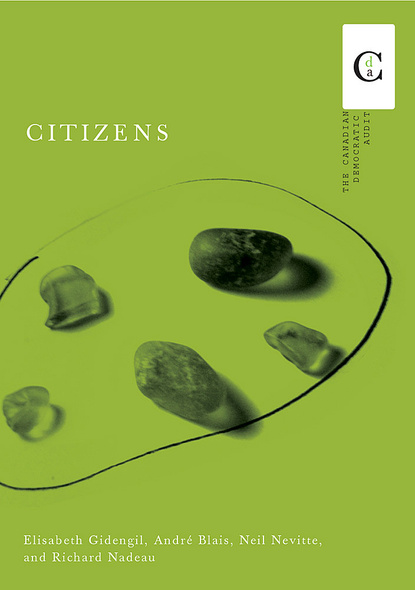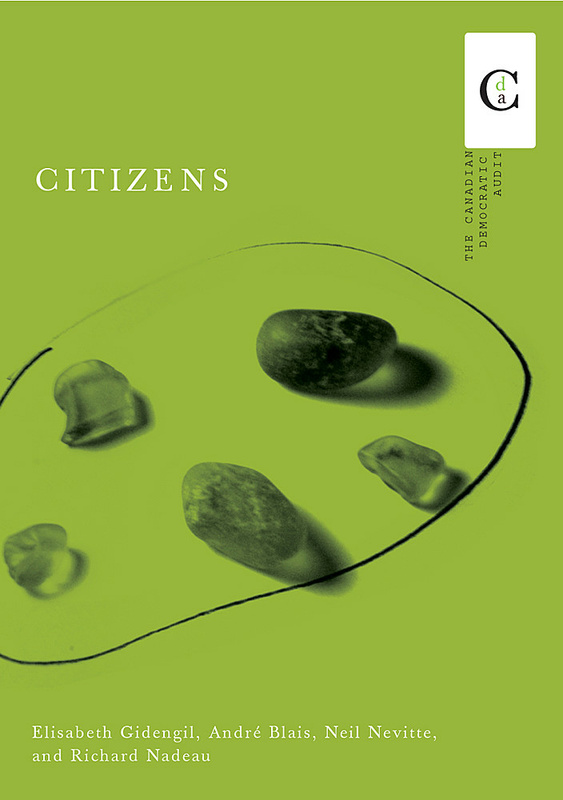
Citizens are central to any meaningful definition of democracy. What does it say about the health of Canadian democracy when fewer citizens than ever are exercising their right to vote and party membership rolls are shrinking? Are increasingly well-educated citizens turning away from traditional electoral politics in favour of other forms of democratic engagement or are they simply withdrawing from political participation altogether?
The first comprehensive assessment of citizen engagement in Canada, this volume raises challenging questions about the interests and capabilities of Canadians as democratic citizens, as well as the performance of our democratic institutions. It is essential reading for politicians and policy-makers, students and scholars of Canadian politics, and all those who care about the quality of Canadian democracy.
I strongly recommend this volume to those concerned with the state of Canadian democracy, as well as to instructors of senior undergraduate and graduate courses in political behaviour. The authors turn what could have been a mundane recitation of data into a thoughtful and important reflection on the social, policy and electoral consequencesof the democratic divide.
The first comprehensive assessment of citizen engagement in Canada, this volume raises challenging questions about the interests and capabilities of Canadians as democratic citizens, as well as the performance of our democratic institutions. It is essential reading for politicians and policy-makers, students and scholars of Canadian politics, and all those who care about the quality of Canadian democracy.
This is an excellent exposition of the attention Canadians pay to their politics, the information they have about it, their levels or participation, and their civic mindedness. The volume also places the information in a comparative context, measuring the data against the background afforded by such observers as Ron Inglehart and Douglas Coupland, both of whose works deal with the impact of generations on attitudes and values. This volume is part of the ‘Canadian Democratic Audit’ series examining how well Canadian democracy is practiced at the outset of the 21st century. The product of the combined efforts of four notable Canadian academic specialists, it is also a timely effort; coming when the levels of Canadian voting are diminishing while media commentary discusses apparent public cynicism and alienation from the political process. The range of topics is wide. It deals with such group dynamics as sex, social class, education, income, etc., as well as activities at the three levels of government – federal, provincial, and municipal. This worthy addition to the series could serve as an important segment of courses in Canadian and comparative politics. Highly Recommended.
Figures
Foreword
1 Auditing Democratic Citizenship
2 How Much Attention Do Canadians Pay to Politics?
3 What Do Canadians Know About Politics?
4 Can Canadians Get By with Less Information?
5 How Much Do Canadians Participate in Politics?
6 How Civic-Minded Are Canadians?
7 Engaging Canadians
Discussion Questions
Additional Reading
Works Cited
Index






